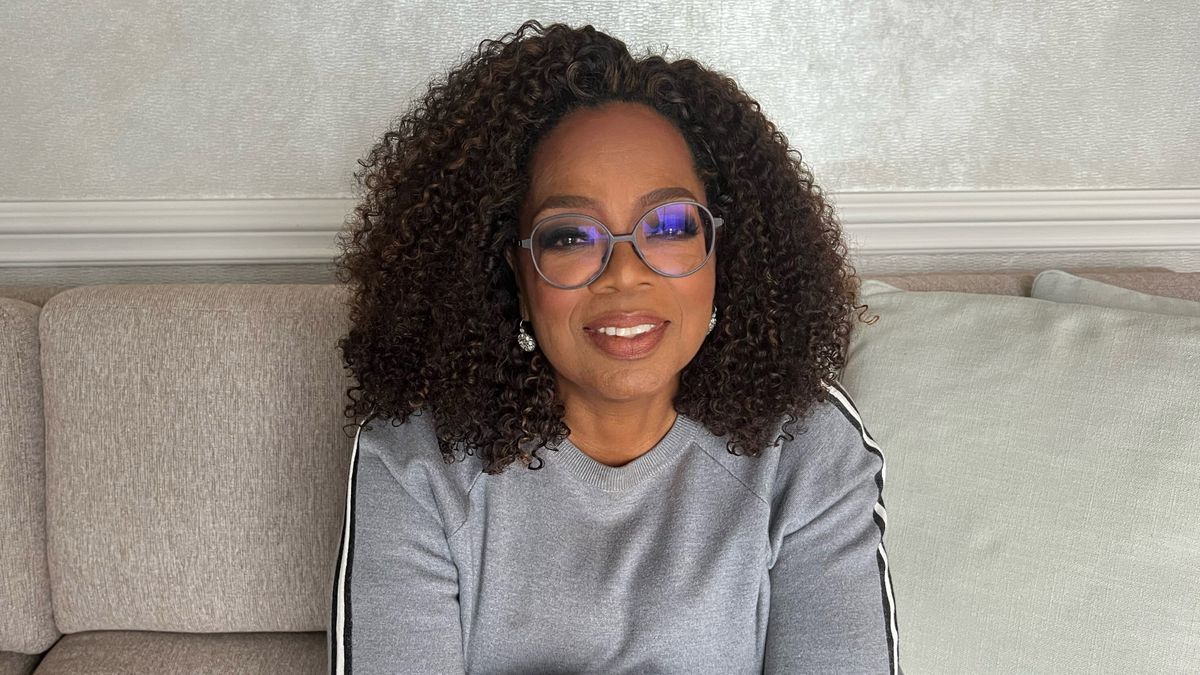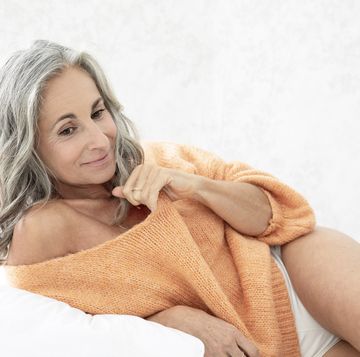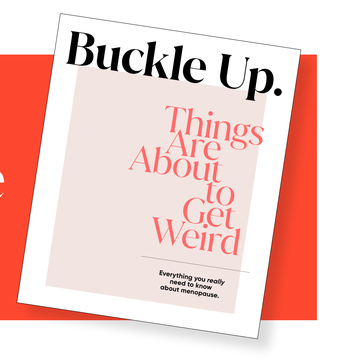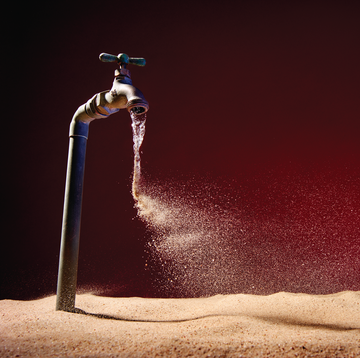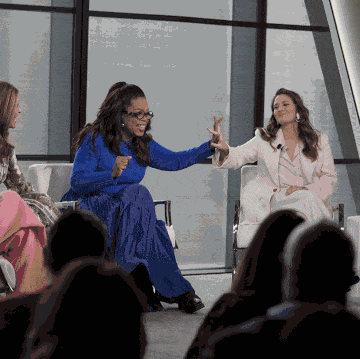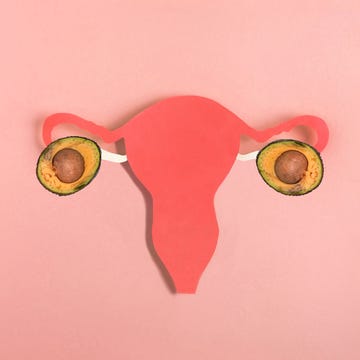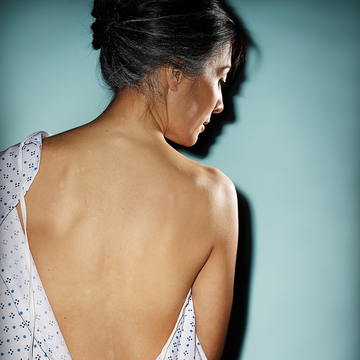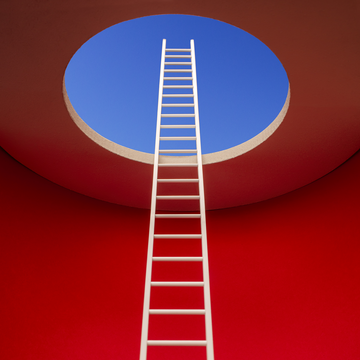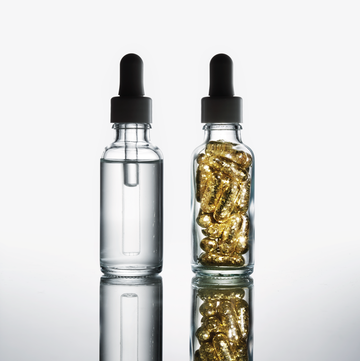In the summer of 2019—the before times, I call them—I went to L.A. in hopes of pitching a TV show about midlife transformation. I would cover all of it: the empty nest, childcare, eldercare, dying parents, divorce, career pivots, decreased earning potential, depression, the works. I was interested in exploring these issues through the lens of midlife being an amazing place and time to start reclaiming our identities, which for too long, I felt, had been defined by other people. I wanted to flip the script on the hard stuff: Let’s turn a midlife crisis into a midlife renaissance.
The response? “You want to do what? A show about midlife and menopause? That’s just…not sexy. No one will watch a show about middle-aged women.”
Ouch.
Three years is a lifetime in television, and since I’d been appearing on it less and less, the world had changed. I knew I was best-known for cohosting What Not to Wear for 10 years, but that had ended seven years prior. Aside from the fact that “transformation TV” was kind of “out” as an unscripted format, the small screen had become more focused on competition shows, strangers getting married, and people struggling with obesity. I’d woefully, and quite quickly, become out of date and out of style.
The thing is, I’d already been feeling that way. I had to fight my vanity and push through my ego when the phone stopped ringing. Looking back, I don’t know if I could’ve even picked up if someone had called. I’d really struggled in the last few years. I didn’t look like myself. I didn’t feel like myself. And even though I’d consulted doctors more than once, things just got worse. Because nothing and no one had prepared me for the physical and emotional changes I was experiencing.
Nothing and no one had prepared me to go through menopause.
Let me continue by saying I’m not interested in hosting a pity party. I simply didn’t have access to education about menopause. I wasn’t given the tools to manage its effects. What I did have was the stigma and shame that surrounds this natural phase of life. And I think a lot of women can relate. It wasn’t until I was halfway through perimenopause that I finally got a handle on what was happening to me. And I’m here to tell you that even though the United States Food and Drug Administration categorizes menopause as a disease (pregnancy, too, by the way), and even though it can feel that way sometimes, it is something 52 percent of the world’s population will experience. In just 36 months, one billion women will be in menopause. That’s 12 percent of the Earth’s population. But it’s hard to understand the positive power of transformation if you’re ashamed of what’s happening.
That’s when I had a great epiphany: Maybe going back to TV wasn’t the only way to help other women make more sense (and use) of this time. Because now that I understand menopause, I see it as an opportunity. An opportunity to redefine and reclaim our experiences as women, not for or through some internalized male gaze and definitely not for or through cultural norms, but for us—for the freedom of who we can become when we get to this phase of life.
From a biological standpoint, a woman’s “worth” decreases when she reaches the age at which she can no longer bear children. We are attracted to youth precisely because it’s when we are most fertile. I suppose this theory holds up for cavemen and woolly mammoths, but in today’s world, a woman’s contributions to society have nothing to do with her ability to bear children. There are women who are unable to have them and certainly those that don’t want them. Does that make their contribution to society any less valuable or important?
I believe menopause is stigmatized because it’s associated with being the gateway to aging. And our culture continues to allow women to believe that age comes with a value judgment: young = good; old = bad. At the time I was experiencing some of the worst issues surrounding menopause, I was ashamed to tell my much younger boyfriend for fear he would see me as old. But when we broke up, he told me he was no longer attracted to me because I had lost my confidence. He wasn’t kind, but he wasn’t wrong.
Menopause is no joy ride. Even though only two “symptoms” of menopause are recognized as medical (hot flashes and vaginal dryness), there are at least 32 other common ones that we are only now starting to talk about: mood swings, night sweats, anxiety, rage, brain fog, insomnia, food allergies, bloating, burning mouth, muscle fatigue, and joint pain, to name a few. It’s tough to be confident when you sweat through your clothing, can’t sleep, gain weight, cry constantly, rage endlessly, and no longer remember nouns.
Shitty boyfriend or not, no woman should have to feel this way. The only way to ensure more acceptance (even enthusiasm) around the menopause experience is to talk about it. Not discussing this entirely natural transition just isn’t…natural. Not discussing menopause doesn’t help anyone, doesn’t serve anyone, doesn’t prepare anyone. What not discussing menopause does do is keep us ashamed of it. And it’s shame, not menopause, that’s truly not sexy.
I certainly don’t want to use scare tactics when talking about this; I prefer “prepare tactics.” But that’s kind of my point. If you don’t know what’s coming, it can hit you like a Mack truck. The more you know before something happens, the more it impacts how you will experience it. Talking about menopause shouldn’t be taboo, because most women reach it by around age 51: That’s a big runway of life still left to live.
In fact, at the age of 51, I made a very clear decision. Rather than wait for a network to green-light a show about midlife transformation, I transformed myself. I became a founder and CEO of my own company, not just to build something for myself after years of working for other people, but to connect more directly with the people I want to serve. My company was born, and in a real way, I was reborn, full of purpose. I realize we don’t lead linear lives anymore. We don’t ascend some ladder of success in some sequential order to get where we are going, and the great news is, we don’t have to. Not only do I feel as if I have nothing left to prove, but there’s a true sense of wonder and curiosity about what’s still in me. Kite surfing, anyone? Ceramics? Archery? I feel more open to learning than I ever have before. I feel less afraid to fall on my face. I feel more empowered to soar. I’m finally in a great relationship. I am discerning about with whom I share my time and energy. I finally look on any kind of external validation from friends, family, peers, even our culture as icing.
The cake is my own.
Menopause is an ending, yes, but not the end. It’s a transition. It is Mother Nature’s biological fail-safe for you to stop, pause, and recenter your focus to take care of yourself. It is the opportunity to safeguard the long life in front of you. It is the opportunity to listen to your body and honor the changes taking place. But more than that, I believe it can and should be a time for reclamation of ourselves on our own terms, outside of cultural expectation, outside of the notion that our value is derived solely from fertility, or youth, or “beauty” as it is defined through the patriarchy. Perhaps puberty is the gateway to socialization and sexualization, even objectification. But what if menopause is the gateway to self-actualization? For me, it has been—and it was hard-won. Reveling in who I am and who I’m becoming isn’t selfishness. Age has taught me who I am.
And the money I’ve saved in cups and tampons alone has bought me some truly awesome jewelry.
Any content published by Oprah Daily is for informational purposes only and does not constitute medical advice, diagnosis, or treatment. It should not be regarded as a substitute for professional guidance from your healthcare provider.
In a refreshingly candid conversation with Oprah Daily Insiders, Oprah, Maria Shriver, Drew Barrymore, and doctors Sharon Malone, Heather Hirsch, and Judith Joseph, we set the record straight on all things menopause. Become an Oprah Daily Insider now to get access to this conversation and the full “The Life You Want” Class library.
Stacy London is one of America’s foremost style experts. She is best known as the co-host of TLC’s iconic show, “What Not to Wear.” Following that success, she hosted and executive produced 3 seasons of “Love Lust or Run.” Stacy has written two books, Dress Your Best, which was published to stellar reviews, and The Truth About Style, a New York Times bestseller. In 2020, she hosted a podcast discussing mental health, Could Be Better, tbh, in collaboration with the Crisis Text Line and The Jed Foundation (JED). In 2021, Stacy became the founder and CEO of State of Menopause, a holistic product line for women which addresses the symptoms associated with menopause and perimenopause. In this new phase of her career, Stacy is doing what she has done her entire career as a stylist: help people from suffering silently, raise their confidence and self-esteem by alleviating external symptoms, and removing the shame that surrounds them.


